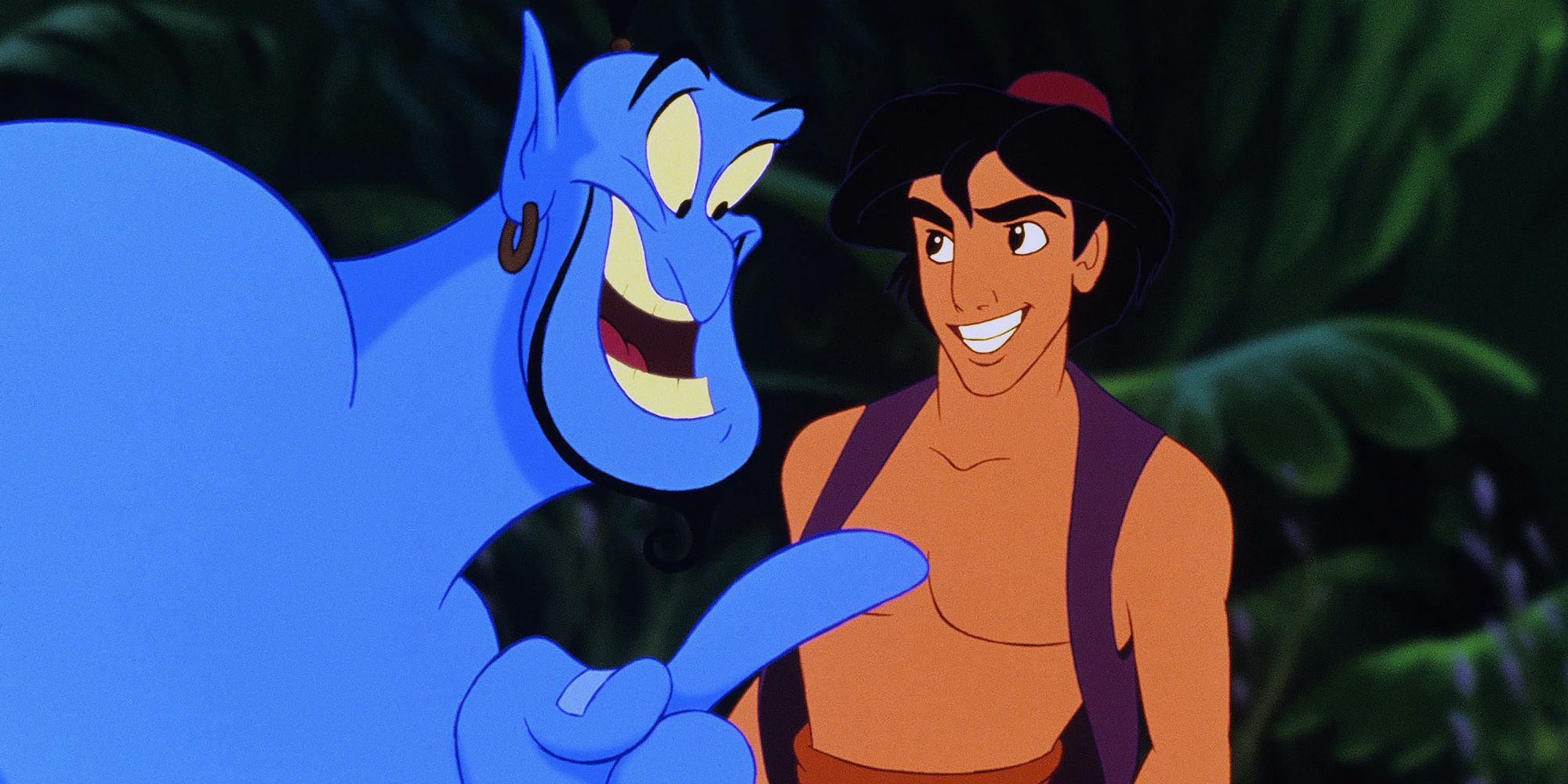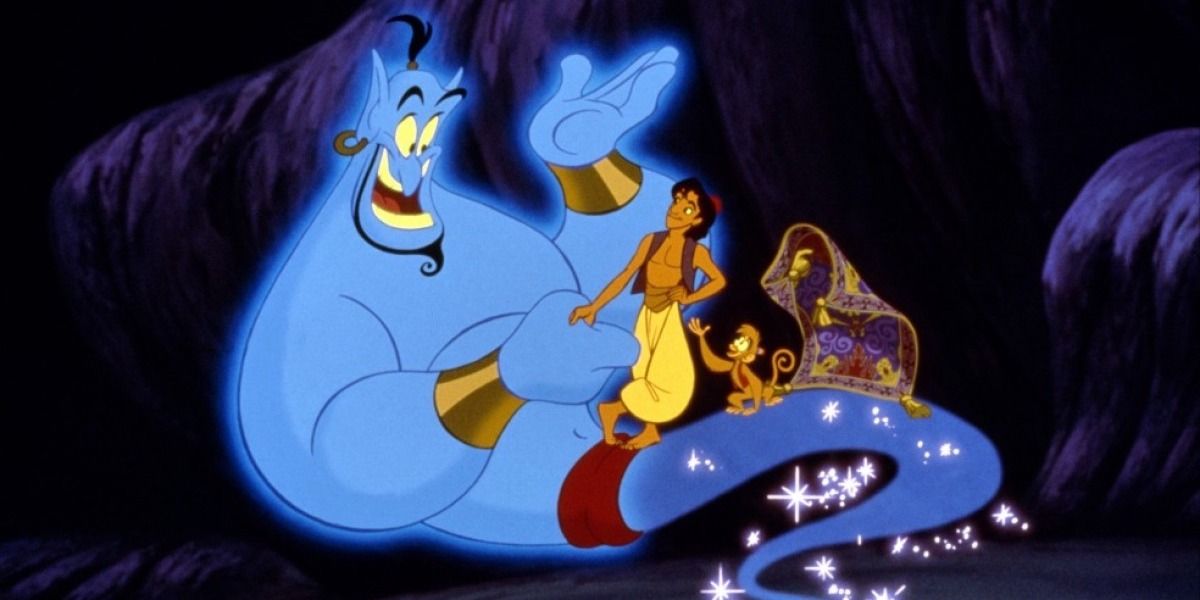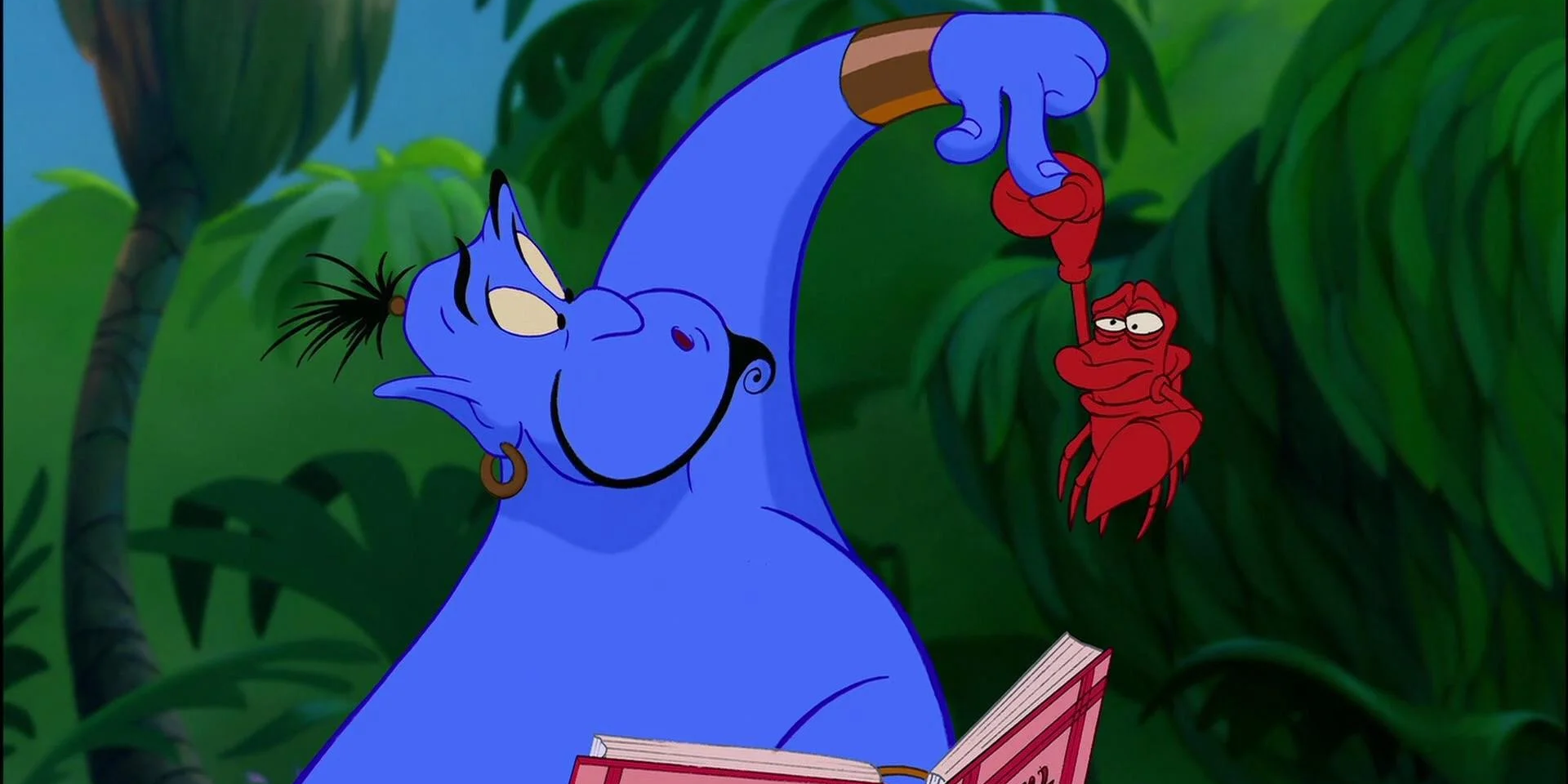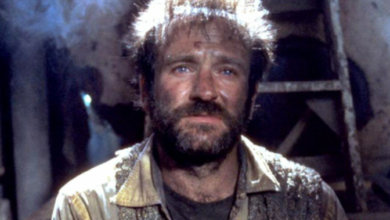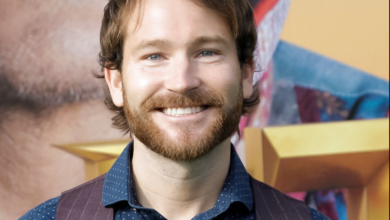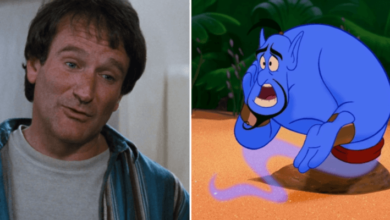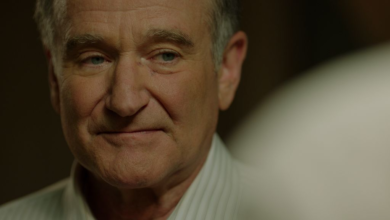Through His Trademark Humor and Heart, Robin Williams Made ‘Aladdin’s Genie Human
The late great actor gave one of the most beloved and memorable voice performances in history.
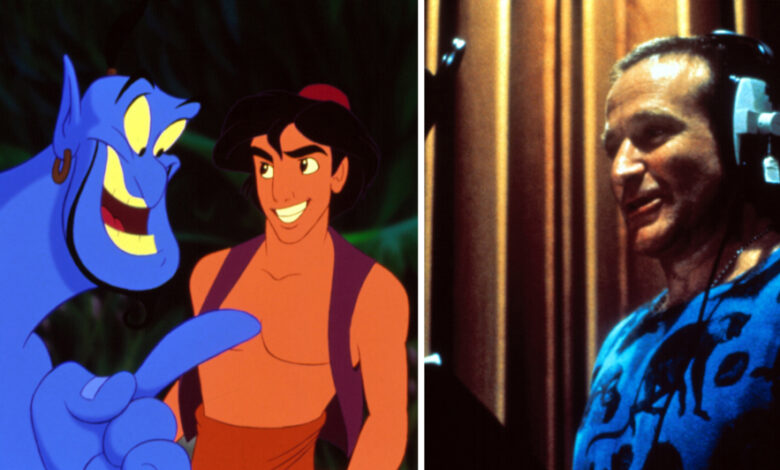
When you think of “Disney” who are the first characters to come to mind? It’s going to be different for everyone, Mickey Mouse and Tinker Bell seem like the most obvious. But for most people, one of the first faces they’ll think of is The Genie from Aladdin, played iconically by the late great Robin Williams. Besides being a charismatic and hilarious part of that film, the character was so iconic he became a Disney icon. The Genie is straight-up used for brand image now, with his name and face being used for Disney Apps. The image and memory of the character inherently illicit emotions of magic, warmth, and joy, which is why the character became so special. Genie wouldn’t be as strong of a presence still if he didn’t resonate with people. But it was Robin Williams’ performance that made the character a classic, not the marketing department telling us to love their new app logo. The reason his performance is so beloved doesn’t just come down to Williams’ trademark humor and impressions either. Behind all the wacky comedy, Williams played the role with so much heart and sincerity that this being of phenomenal cosmic power feels just as real and human as anyone else.
The World of Agrabah
One of the things that make Aladdin feel so timeless is that the movie is stylized like a Broadway musical or a Golden Age Hollywood Epic. This movie has the same amount of DNA as Lawrence of Arabia and West Side Story as it does the original story of Aladdin. The world is grand in scope, showing multiple expansive shots of the film’s beautiful locations. That scale is where the old Hollywood influence comes in, it’s all cribbed from that era. While that covers the presentation, the Broadway influence covers the characters. Every character in the film, with the exception of Genie, talks as if they are in a grand musical. Everyone speaks very bluntly about their wants and desires.
Part of this is through the music. The film’s “I Want Song,” which is the name for songs in musicals where characters will literally sing directly about their wants that inform the choices they make throughout the story, is a reprise of the song “One Jump Ahead”. In the song, Aladdin (Scott Weinger) literally sings about how he just wants people to see him for what he’s worth, instead of a random homeless person who occasionally causes a ruckus in the city. In Jasmine’s (Linda Larkin) first scene, she makes a grand gesture by releasing some birds from a cage and dramatically watches them fly away across the horizon.
It’s all very upfront and direct, it’s impossible to misinterpret. But, the schmaltzy presentation is purposeful. It’s not as if this is lazy storytelling, it’s just honest about what the story is. This iteration of Aladdin is, at its core, a fairy tale. And fairy tales kinda need a level of sincerity like that. It works to ground the world of the film and get the audience used to the rules of this world, and how people communicate. It builds a castle of heart and sincerity up until the end of the first act when Genie enters the story, and Robin Williams gets to knock it all down himself. He does eventually build it back up, but the destruction of it is all part of the fun of the character.
Phenomenal Cosmic Power!
As Three Thousand Years of Longing will tell you, every story involving genies and djinn is some kind of cautionary tale where the Genie is the disruptor of the story. Their wish granting is what moves the plot along, and they are the reason the drama of the plot moves forward. In this iteration of Aladdin, this is only half true. Genie is the disruptor of this film, and he stands out in both subtle and overt ways. For one, he is the only character that literally glows, making him shine more than the rest of the characters.
He is the only lead voiced by a well-known celebrity, having already been a major star for decades by the time this movie came out. Gilbert Gottfried was also a big-name celebrity at the time, and his performance is wonderful in the movie as well, but Iago the Parrot is far from a lead character. But the biggest difference comes from the style of performance that Williams gives. While everyone else is acting as if they’re coming right from the stage of a musical, Williams informs the role with the same manic energy he would give in his comedy specials but toned down just the right amount to not feel distractingly out of place and be appropriate for the G rating.
Genie functions more like a Looney Tune. He’s basically a big, blue, Bugs Bunny! He always has the right thing to say, makes a lot of pop culture references, and is able to screw with the main cast of the story in the same way that Bugs did. Like Bugs, it’s almost as if the character is the writer of the very movie they’re in, just messing around with everyone else like they are chess pieces. It creates an eclectic performance that’s performed and animated so well, that when you’re watching it, it’s rare to stop and think “why is a character in this time period making references to pop culture from the 1970s and 80s?” That criticism tends to only come up when this movie is really nitpicked, it’s hardly distracting. Robin Williams’ performances lean so well into being animated because he was always so animated himself. But, while Genie is a disruptor of the world in this story, he is hardly the cause of drama in the story.
All the Magic, and All the Treasure, in All the World
The thing that really makes Genie stand out from other tricksters in fiction is that he really isn’t a trickster. In fact, in his introduction scene, Aladdin is actually the one that cons him to get a free wish. And in Genie’s good nature, he actually honors that and doesn’t count the wish because Aladdin did best him. But throughout the movie, Genie never once tries to con Aladdin. This isn’t a trickster or monkey’s paw situation like most Genie stories. Genie is the angel on Al’s shoulder, always telling him to be truthful and be himself. It’s only Aladdin’s arrogance and insecurity that leads to his folly.
This is such great juxtaposition because it’s what helps Genie’s frantic comedy style from feeling out of place. Though Genie switches between many impressions and silly voices throughout the film, Williams always uses his natural speaking voice whenever Genie is being vulnerable. It brings him down to the same level as the rest of the cast. Though Al doesn’t see it at first, Genie was only ever trying to help him.
The choice to dip into his natural speaking voice is so subtle at points, that it’s almost hard to notice. He’s always there to entertain everyone else, but his natural voice is like a knife making very precise cuts. Whenever he dips into it, it makes a lot of plot significance. It happens when Aladdin first tells Genie that he will set him free. It then happens again when Genie is telling Aladdin to tell Jasmine he’s the same street rat she met earlier in the movie. It occurs more intensely and dramatically when Genie and Aladdin fight about Aladdin no longer wanting to wish him free, and lastly when Aladdin does wish for his freedom at the end.
Something about his natural voice in turn makes him feel like the most realistic-sounding character in the movie. He can see through Aladdin’s selfishness when no one else can, and gently helps him become a better person. The Genie in this film doesn’t exist to serve Aladdin any more than he existed to serve the audience. The Genie is magic, but with how his manic comedy and sincere affectation, he is the most human of all the characters. That is what makes the character endure, and why the legacy of that role will stick with anyone who has ever seen the movie.

